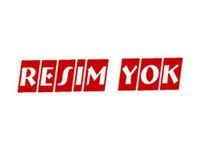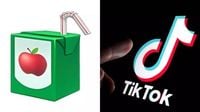It started as a seemingly innocuous change on TikTok: users who tried to comment with the juice emoji suddenly found their posts deleted and a stern warning from the platform about violating policies on alcohol, tobacco, and drugs. Within hours, screenshots and memes flooded X (formerly Twitter), with confused and amused users poking fun at the idea that a cartoon beverage could be so controversial. Yet beneath the laughter, a more serious conversation was brewing—one about free speech, online censorship, and the growing influence of powerful interests over social media platforms.
The timing of TikTok’s juice emoji ban was no coincidence. Just days earlier, a $14 billion deal had shifted control of TikTok’s U.S. operations to a consortium of American investors, led by tech giant Oracle and private equity firm Silver Lake. As reported by multiple outlets, including LifeSiteNews and Todayville, Oracle co-founder Larry Ellison—a billionaire known for his staunch support of Israel—now holds a major stake, with Oracle and Silver Lake jointly owning 80% of TikTok U.S. ByteDance, the Chinese parent company, retains less than 20%, a sharp reduction designed to satisfy U.S. national security concerns.
For some, the emoji ban was a head-scratcher. As one X user quipped, “Imagine being frightened by a cartoon juice box.” Another joked, “Banning an EMOJI of JUICE! This EMOJI has seen us through some great times! Elon Musk should bring that Emoji here, as we got some pineapple mutant versions.” But for others, the move was a clear signal of deeper changes afoot. The juice emoji, some noted, has been used in online circles as a coded reference to Jewish people, a fact not lost on those scrutinizing the motivations behind the new moderation policy. “TikTok is now censoring the juice emoji which is commonly used to allude to Jews,” one user posted, while another speculated, “It’s because the ADL lists the juice emoji as a symbol of hate… they think it refers to Jews (like joos).”
The controversy over the emoji is just the latest flashpoint in a broader struggle over TikTok’s role in shaping public opinion—especially regarding Israel and Palestine. According to LifeSiteNews, Israeli Prime Minister Benjamin Netanyahu described the acquisition of TikTok by pro-Israel allies as “the most important purchase that is going on right now,” calling it a “weapon” in the fight for global opinion. Speaking to a group of pro-Israel influencers after his address at the United Nations General Assembly, Netanyahu emphasized the strategic importance of social media platforms in defending Israel’s interests. “We have to fight with the weapons that apply to the battlefields within which we’re engaged. And the most important ones are on social media,” he said, adding, “I hope it goes through because it can be consequential.”
The urgency behind this acquisition is rooted in shifting public sentiment, particularly among younger Americans. In November 2023, Jonathan Greenblatt of the Anti-Defamation League (ADL) voiced alarm over what he called a “TikTok problem,” pointing to polling data that showed Gen Z’s support for Israel falling rapidly. A 2022 Pew survey found that while 55 percent of all Americans held a favorable view of Israel, only 41 percent of those aged 18-29 did. By 2024, Pew found that just 14 percent of Gen Z sympathized with Israel, compared to 33 percent who sided with Palestinians. On TikTok, the hashtag #freepalestine had racked up 31 billion posts, dwarfing the 590 million for #standwithisrael—a more than 50-fold difference, as reported by The Hill.
Faced with these trends, pro-Israel groups and their allies in Congress pushed for legislative action. The result was the Protecting Americans from Foreign Adversary Controlled Applications Act (PAFACA), passed with bipartisan support in April 2024 and signed into law by President Joe Biden. The bill, which specifically targeted apps like TikTok over concerns about Chinese influence, was heavily lobbied for by the ADL, Jewish Federations of North America, and Hadassah, who argued that the platform allowed “anti-Israel sentiment to run rampant.” According to the Nebraska Examiner, all 55 House co-sponsors of the bill had received donations from the American Israel Public Affairs Committee (AIPAC), totaling $3.35 million for their 2024 campaigns alone.
Yet, as Senator Mitt Romney later admitted, the primary driver behind the rapid passage of the TikTok legislation wasn’t just anxiety about Chinese data collection. It was the sheer volume of pro-Palestinian content on the platform and its impact on American youth opinion. The new ownership structure, with Oracle and other U.S.-based interests at the helm, was seen as a way to regain control over the platform’s powerful algorithm and, by extension, the narratives that reach millions of young Americans each day.
Netanyahu’s remarks to pro-Israel influencers left little doubt about the stakes. “What we have to do is we have to secure that part of the base of our support in the United States, that is being challenged systematically… How do we fight back? Our influencers, I think you should also talk to them if you have a chance,” he said. He also suggested that controlling TikTok—and potentially X/Twitter, whose owner Elon Musk he called “not an enemy. He’s a friend”—would be crucial in winning the information war. “Now if we can get those two things (TikTok and X), we get a lot,” Netanyahu concluded.
The changes at TikTok have ignited a firestorm of debate about censorship and free speech. Some users see the juice emoji ban as a trivial overreach, while others interpret it as a harbinger of more aggressive moderation policies designed to suppress certain viewpoints. “Isn’t it amazing how the so-called 'Conservative influencers' don't care about Free Speech anymore when it comes to Zionists and Israel?” one user remarked, highlighting the political complexities at play.
As of October 1, 2025, TikTok has yet to issue an official response to the juice emoji controversy. But the platform’s new American-led board, which includes six U.S.-appointed members and just one from ByteDance, signals a new era in content oversight. The move has already reassured some U.S. lawmakers and security officials, who long argued that Chinese control over TikTok posed risks to national interests. But for millions of users, the question remains: will the new regime at TikTok protect free expression, or will it become another battleground in the global fight over information and influence?
For now, the juice emoji sits at the center of a much larger debate—one that touches on politics, identity, and the power of social media to shape how we see the world. Whether it’s a harmless cartoon or a symbol loaded with meaning, its fate on TikTok is a reminder that even the smallest digital changes can have outsized real-world consequences.


